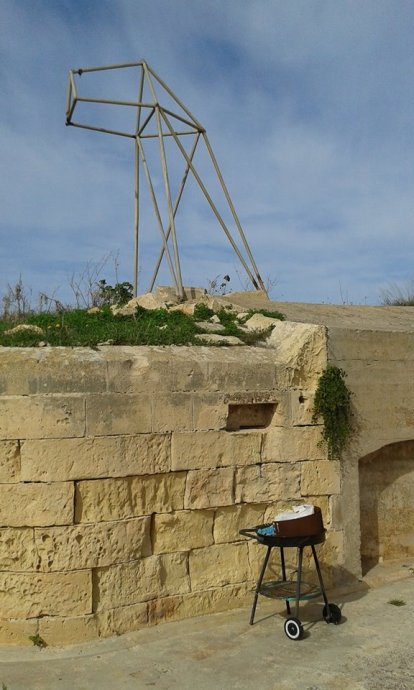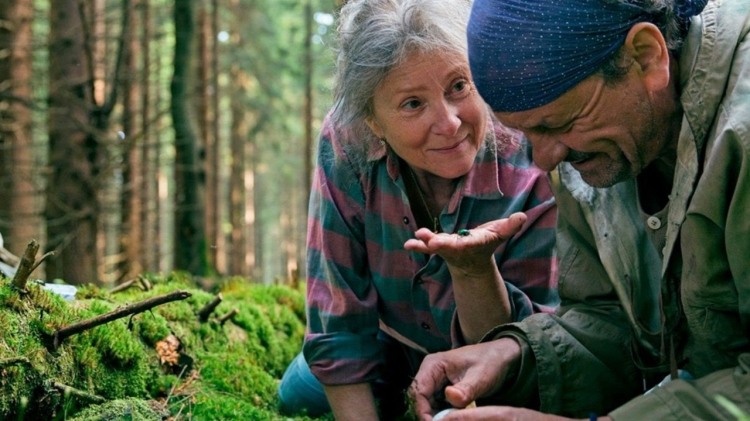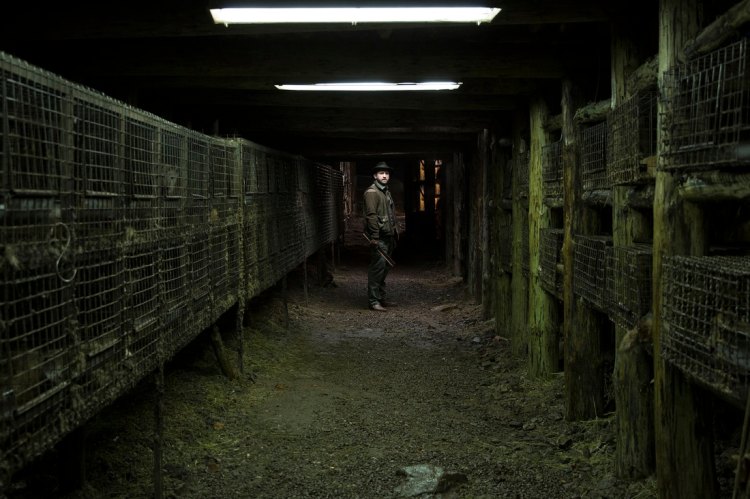One of the many ‘uses’ of fiction is its ability to zoom in on and then pick apart some aspect of our experience as self-conscious creatures thrust into a world that cares very little for our life’s trajectories – be they emotional, economical or philosophical.
From the primordial power of the earliest myths and religious narratives down to the most kitchen-sink realism, that thing we can broadly define as fictional narrative can serve to give us some form of solace – be it through simple escapism or by allowing us the focus of meditation.
Jeff VanderMeer’s Borne goes some way towards literalising these ‘uses of fiction’ by presenting a post-apocalyptic fable narrated with a world-weary eye by Rachel, a scavenger in this ravaged landscape who finds a piece of sentient biotech which she nicknames ‘Borne’ and begins to raise as an erstwhile child, much to the chagrin of her partner and survival companion, Wick.

In line with VanderMeer’s most recent work, Borne does not default to stock tropes when painting its picture of the natural world, and our relationship to it. And this also counts for VanderMeer’s take on the post-apocalyptic scenario. There is no sweeping, omniscient voice explaining away How We Live Now (and as if it’s a deliberate gag, the final section of the novel riffs on that exact phrase — crucially, however, replacing ‘We’ with the more modest ‘I’). Instead, we are thrust into it from the point of view of a strange new family… stranger still, from the point of view of its troubled formation.
VanderMeer’s ecological focus was made apparent thanks to the trilogy of Southern Reach novels – all of which were released in a seasonal stagger back in 2014, and which have endeared him to a new batch of readers who may cleave more closely to the literary mainstream than the fans of his earlier, weirder work.
Running the gamut from science-fiction thriller to explorations of bureaucratic entropy and surreal fever dream punctuated by melancholy for a fading natural world, the trilogy – comprised of Annihilation, Authority and Acceptance – only pays tribute to speculative fiction tropes when it needs to, with VanderMeer employing them to tell a story of an encroaching environmental catastrophe which only brings into focus our diminished understanding, and relevance, in an ecosystem that we’re helping to destroy through a mixture of avarice and willful ignorance.
Borne picks up after the destruction is more or less complete, though as alluded to earlier, there are no explanatory prologues detailing exactly what happened, with no fingers pointed at unambiguous culprits. Instead, it finds Rachel and Wick simply surviving, and VanderMeer gets a lot of dramatic mileage from this sharpened worldview.

The Courtyard of Dead Astronauts (from ‘Bourne’). Art by Kayla Harren
However, it is clear that Rachel is narrating all of this to us from a retrospective standpoint. Dramatically, this does rob the story of some immediacy in an wider sense. Though the grime and graft of surviving in such a world is very much evident throughout, Rachel’s digressive and analytical lapses into what all of this means for her and her relationships – with Wick, with Borne and the rest of this unsettling, Not-So-Brave New World – signal to the reader that the novel will not be about the payoffs of suspense implied by the ‘survival narrative’ genre. But this is also what makes the book so distinctive, so sensitive.
Once again, VanderMeer swerves away from generic constraints to focus on larger themes that deserve to be digested thoroughly. As was the case with the Southern Reach trilogy, VanderMeer once again shows he’s not interested in a cliched representations of the natural world, and avoids indulging any ‘human-splaining’ tendencies for natural phenomena in favour of depicting the environment – now rendered even stranger by the complete fallout of civilsational collapse and its toxic discontents – in granular detail which builds to a sense of true wonder.
The same could not be said for the overarching political realities that frame Rachel’s existence. We are told that the main opposing forces in this world are the ‘Company’, which asserts its dominance through the biomechanical giant bear, Mord, and his many proxies, and the ‘Magician’, who runs a resistance force that Rachel and Wick find suspect.
“Seeing the map revealed so nakedly made naked, too, the thought of a growing conflict – to rule the city – and what choices! We were so lucky, after such strife, to be able to choose between a homegrown tyrant in the Magician, who strove to win by any means, and a Company-grown tyrant in Mord, who held the city in stasis, us unable to do more than react to his whims. Neither imagined as rules could long be tolerated. Yet we could not imagine what lay beyond them except, with a shudder, the specter of the Company itself rising once again from its own ashes.”
In some ways, this is an affront to the kind of laboured ‘world-building’ that’s encouraged by the conventional hegemony of speculative fiction. But it works all the better to transmit the kind of ‘mythic’ clarity mentioned earlier. By not drowning himself in the details of how both the Company and the resistance works, VanderMeer gives Rachel wider berth to expand upon the day-to-day implications of this ongoing social friction.

Mord, woodcut by Theo Ellsworth
Then, of course, there’s Borne itself. The creature is another act of mythic distillation on VanderMeer’s part; both heartwarming and unsettling, his growth is, on the one hand, an expression of the ins-and-outs of the raising of children and on the other, our inability to fully comprehend the jolting permutations of a natural world thrown into crisis.
Is Borne a miniature – even, in certain ways, ‘cutesy’ – iteration of the Area X of the Southern Reach novels (an encroaching blot on the landscape that signals danger and absolute bafflement)?
Perhaps, but Rachel’s emotional processing of the creature she takes under her wing is rife with an understandable (but always, inevitably) reductive anthropomorphism, much to Wick’s chagrin, but in a way that creates a pleasing affect for the reader. Yes, this is VanderMeer doing his take on the ‘talking beast’ fable – from Aesop to Disney – but it’s when the more unsettling implication of what Rachel had been ignoring come to the fore that things truly get interesting.
Also because VanderMeer doesn’t skate over that other layer of the trajectory of parenthood – the realisation that the adults in your life are as broken and insecure as you are.
And indeed, when Borne temporarily exits stage left to assert his newfound independence, VanderMeer expands upon another favourite theme – the fragmented nature of human memory and identity, explored so hauntingly through the fractured figure of ‘Ghost Bird’ in the Southern Reach trilogy.
“Wick never believed he was a person, was continually being undone by that. Borne was always trying to be a person because I wanted him to be one, because he thought he was right. We all just want to be people, and none of us know what that really means.”
By turns harsh and delicate, immediate and removed, Borne is as strange and oblique a beast as the creature of its title. Not so much of a ‘tour de force’ of genres and styles – not as much as the Southern Reach trilogy was, anyway – it feels more like a digression into similar themes, with VanderMeer using the opportunity afforded to him by the success of that trilogy – the first installment of which is being adapted into a feature film by Alex Garland – to wade into more exploratory waters.
It truly succeeds in “finding life in the broken places…”














